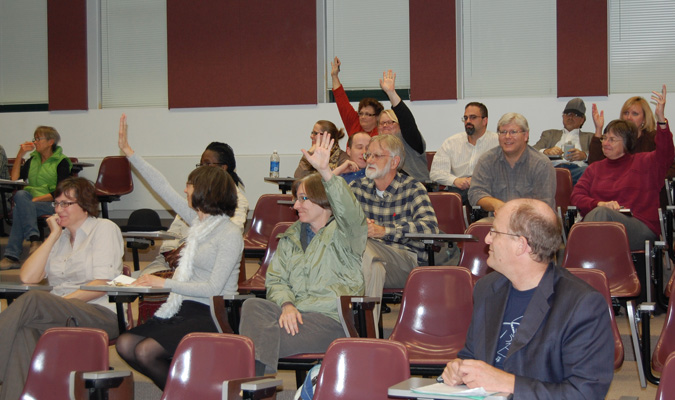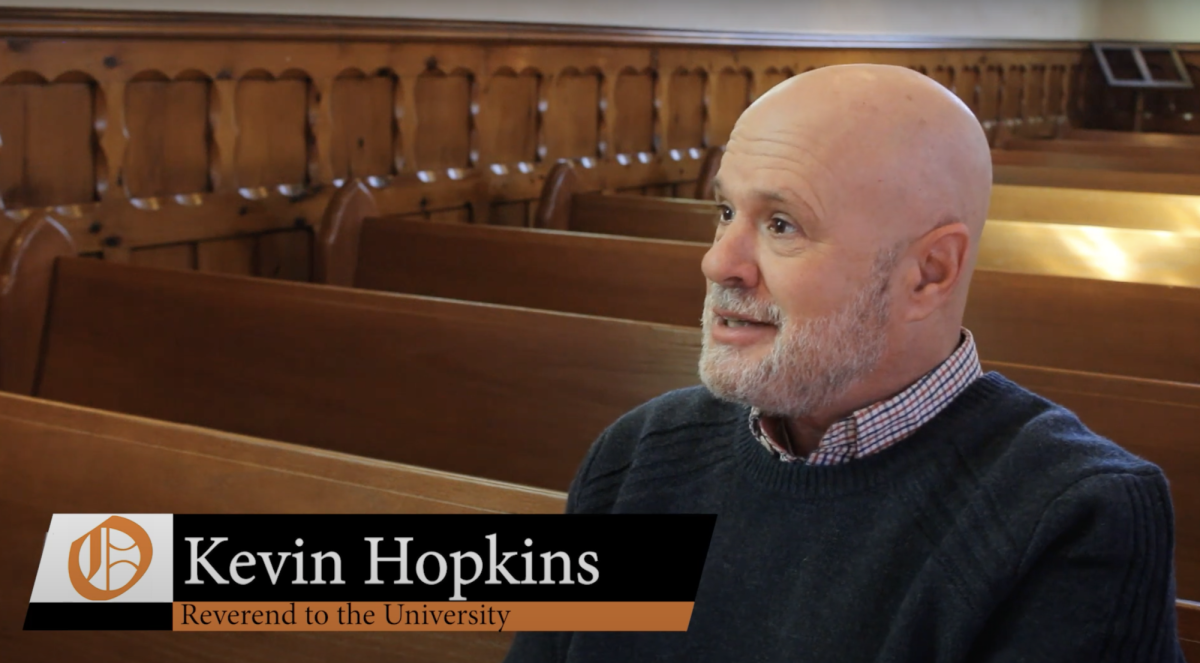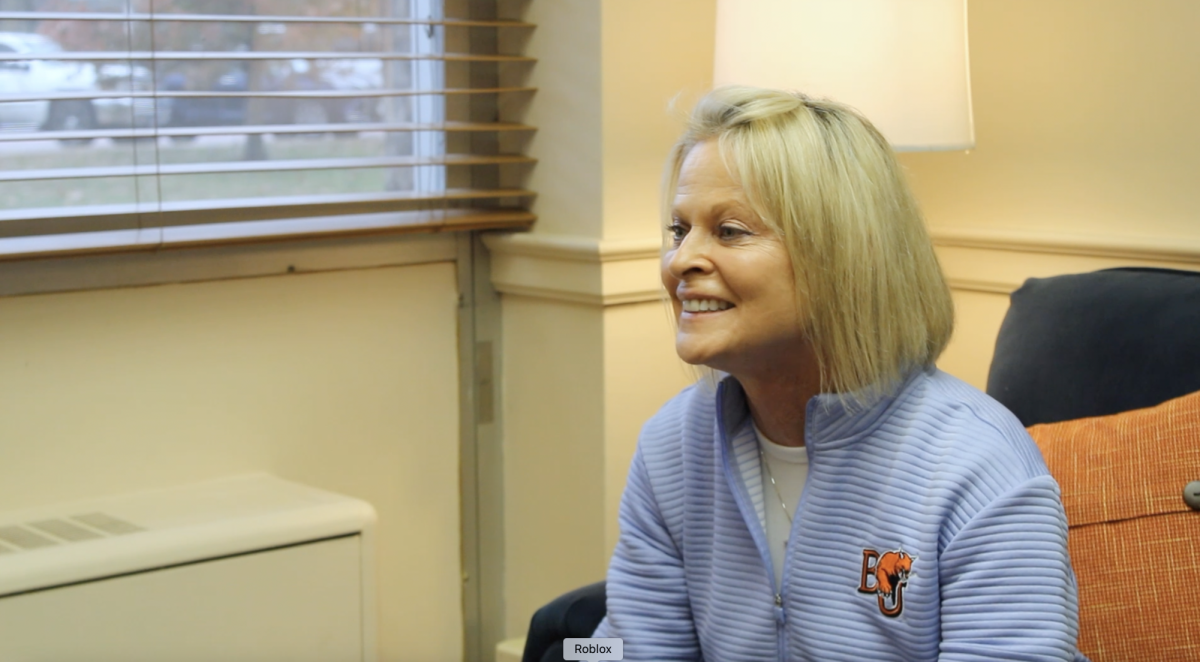Discussion of a new, weekly academic calendar is still on the table after a Town Hall meeting Tuesday.
Jacob Bucher, Educational Programs and Curriculum committee Chairman, called the meeting as a chance for all faculty to discuss the advantages and disadvantages of the new calendar.
The calendar, which is still in discussion within the EPC committee, would have to pass within the committee and then within the Baker University Faculty Senate before it could be implemented.
The new format would give students Wednesday afternoons off and would create Monday/Wednesday/Friday classes, as well as Tuesday/Friday, Monday/Thursday and the traditional Tuesday/Thursday classes.
Gene Johnson, associate professor of mathematics, said students in math classes often benefit from having a class three days a week for 50 minutes rather than attending a class two times a week for 75 minutes.
Professor of German Cynthia Appl echoed what Johnson said in regards to those students taking a world language course.
“World language courses, at least in the first and second year, are such that the students benefit from various, but more frequent, contact,” she said.
Another concern came from Professor of Spanish Sandra Schumm, who brought up how the new calendar would hurt the language tables, which are currently scheduled for Tuesdays at 11 a.m.
The new calendar does not have an open time slot at 11 a.m. on Tuesdays and Thursdays.
Another change would be that classes would start at 7:30 a.m. According to the fall 2011 timetables, there are not any courses offered at 7:30 a.m. or any courses planned for next semester at 7:30 a.m.
“I’m not a morning person,” Johnson said. “I teach at 8:30 (a.m.), more than most people … by making it at 7:30 (a.m.), it would make it even worse … and I know when I am in that stage, I am a bit of a space cadet in class.”
While a number of faculty discussed the negative sides of the proposed calendar, Tom Heiman, associate professor of theater, and Instructor of Music Marci Ziegler discussed how the new calendar could benefit students in music and theater courses.
“Like theater, we have benefits to the change,” Ziegler said. “Listening to everyone else in their other areas, I certainly understand from your perspective how this wouldn’t work. For us, in art, we do a lot of things you would call studio. Rehearsals, things that need more length … but languages, I understand that you need that shorter, more daily time.”
At the end of the meeting, Bucher took a straw vote where members of the faculty could say whether they were for or against the proposed calendar. Heiman and Ziegler were the only faculty that raised their hand in favor of the new calendar and 15 raised their hand in opposition.
There were 10 faculty who raised their hand signifying they were ‘flexible’ with the calendar and they would remain indifferent on the matter.
Bucher said he would take the points of discussion back to the EPC committee for further discussion before making any kind of recommendation.








